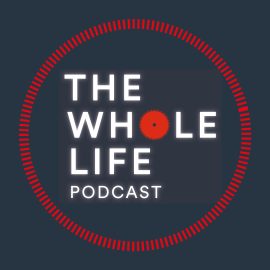Word for the Week
Short reflections on Bible passages, with a frontline focus...
Read

When the woman saw that the fruit of the tree was good for food and pleasing to the eye, and also desirable for gaining wisdom, she took some and ate it. She also gave some to her husband, who was with her, and he ate it. Then the eyes of both of them were opened, and they realised they were naked; so they sewed fig leaves together and made coverings for themselves.
GENESIS 3:6–7
In the next 12 months, there’s going to be a general election. The political parties will offer different (or perhaps not so different) accounts of what’s wrong with the world and what can be done to put things right. The political right has traditionally focused on individual choice and the power of the market as the solution. In contrast, the left has tended to distrust the market and looked to the state.
But underneath the rhetoric and differences in policy, the left and right are generally after the same thing. They both assume we are ‘essentially individuals in need of liberating from other people who make demands on us, so that we will be free to chart our own self-chosen path through the world.’ (Graham Tomlin, Why Being Yourself Is a Bad Idea: And Other Countercultural Notions, p.16)
Where does this assumption come from? Genesis tells the story of how Adam and Eve looked not to God for moral guidance and direction, but to themselves. Despite the fact that God told Adam that he was free to eat of any tree in the garden except the tree of ‘the knowledge of good and evil’, Adam and Eve thought that they knew better and ate of it anyway.
Instead of looking outside of themselves to God, they turned inward. Not content to be like God, his image-bearers, they wanted to be God. They wanted to take control. The result – as evidenced throughout Scripture and all human history – was catastrophic. Adam and Eve were banished from Eden and God’s presence, and the relationship between human beings and all of creation was destroyed.
A German word that powerfully describes this situation is ‘sehnsucht’. Sehnsucht describes a state of restlessness, a craving, a longing to return to a place of rest and fullness. Politicians might not understand the theological significance of sehnsucht, but they certainly see the restlessness in our culture and try to speak into it. The problem is that politics – even at its best – is incapable of addressing the profound displacement that exists.
How might we respond? In the first place, we can recognise that being fully alive and truly free comes from looking to God for wisdom and not into ourselves. Secondly, we can ensure that all we do – in our work and everyday lives – is offered to God in worship and the service of our neighbours. If we do this, we will not only be modelling the change we seek but helping to bring it about.
—
Paul Woolley
CEO, LICC
In a culture that is obsessed with the self, how will you live counter-culturally for the flourishing of your neighbours this week? Join the conversation below.

Do some litter picking.
Smile and acknowledge people
What a wonderful devotion! All I can respond with is just a hearty AMEN!
Thank you, Paul. This is a great New Year thought-stirrer. My take is that the “sehnsucht” you accurately describe is largely unsensed by the majority of politicians, media, business people, economists, health professionals, social scientists and even large swathes of the religious establishment.
This deep restlessness, typified by Dame Louise Casey’s current Radio 4 focus on “Fixing Britain”, will not be successfully addressed, or healed, without one key insight: our sehnsucht malaise originates, and is sensed and understood, mainly in our spirits. It is not an intellectual problem to be thought out. AI won’t help!
Public life is conducted with scant regard to the fact that our nation of human beings of all ages and stages, all races and ethnicities, is comprised 100% of people who have a spiritual core. Most public discourse and policy is cognisant only of physical, material and mental wellbeing. We need to understand afresh the significance of God’s emphasis on spiritual health and resilience.
Thank you so much Paul. A great summary and challenge for 2024.
May God look after you all at LICC